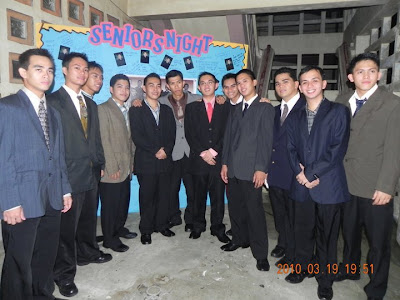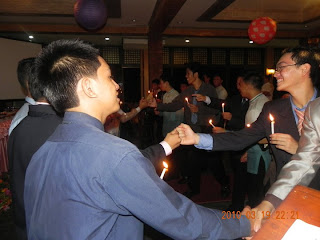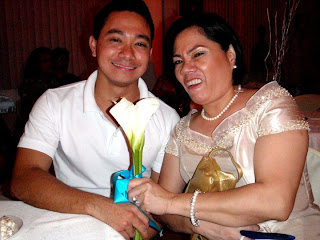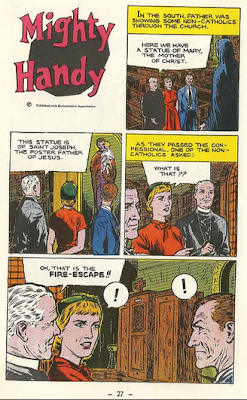My dear brothers and sisters,
It is a known fact that living creatures are in need of certain elements, elements without which they cannot survive. Aside from the oxygen-rich air that we breathe, the earth that we tread upon, and the heat that we need in order to function well, we need water in order to subsist. It is a known fact to many of us that the human body is composed of water by 70%. A significant fraction of the human body is water. This all the more underscores the fact that we living beings, humans especially, need water or else we perish.
This need and importance of this element is made manifest in the readings of this Sunday, the third of the season of Lent. The experience of the Israelites in the desert show us this human need, a need that is so great, that they begin to grumble and doubt the providence of the Lord who had saved them from Egypt with His mighty arm and outstretched hand. Will the God who had rescued them from the tyranny of Egypt through the wonders that He had made manifest to them allow them to simply die of thirst in the hot and merciless desert? This is but one of the many instances that Israel would be tempted to withdraw its trust in the Lord. Aside from being an episode that shows the lack of faith in God’s providence on part of Israel, this episode also manifests the providence and care of God which is always prompt.
“I will be standing there in front of you on the rock in Horeb.
Strike the rock, and the water will flow from it
for the people to drink.”
Strike the rock, and the water will flow from it
for the people to drink.”
As a token of His providence God gives his people water to drink. As a manifestation of His omnipotence he gives them to drink from a rock. The First Reading admonishes us to have trust in the Lord, who will always attend to our needs and who understands our concerns, and anticipates them, because of His loving providence. The Lord knows what we need, and what we REALLY need, and gives them according to His love and wisdom. He is not a mere architect of the universe, who creates the world and leaves it to its destiny; rather he is the Father who rules creation with his loving providence.
This is a reminder that is made out to us because too often we are so consumed with our own concerns we become deaf to the fact that the Lord is here telling us that we have nothing to fear actually, since everything is in His hands. The Responsorial Psalm expresses this beautifully: If today you hear his voice, harden not your hearts!
Nowadays so many things tend to harden our hearts to the Lord. So many needless preoccupations and anxieties, the vanities of this world, the unwarranted indulgence in pleasures that rather tend to lead us away from God, the temptation to view freedom as doing our own will and following our own law other than the Law of the Lord: these are the things that subvert and harden our hearts to the voice of God. To harden our hearts against the Lord ultimately means to allow ourselves to believe that we can be happy without God, that we can be the source of our own fulfillment; it is the temptation to believe the fallacy that one can live free and fulfilled EVEN if one chooses to live against the commandments of God.
This brings us to consider the scene of the gospel this Sunday, wherein we see the figure of that woman from Samaria. Here we see a woman who has a very deep thirst for life, a thirst which she had tried to quench, rather unsuccessfully, for she had tried to satisfy it with earthly waters. Her daily trip to the well might as well be a reflection of her attempt to fill her heart time and again with whatever may seem to promise her happiness. This woman knows that she is thirsting for love, and she has tried to satisfy it in her life, to no avail; the Gospel mentions that she had passed from man to man, seven in all, and that these relationships had only served to lead her farther and farther away from the happiness she sought. After so many attempts, she has her heart hardened and weary, so much so that she is deaf to the plea of the Lord whom she unwittingly meets one day at the well and who asks her: “Give me a drink”
There are only two incidents in the Gospel in which we see Christ beg for something to drink, in which we see Christ thirst; the first is here in this episode with the woman from Samaria, and the second, when he hangs upon the Cross and whispers, “I thirst”. These episodes are indicative of His sacred Humanity, of the physical need for water; but on the other hand, it “expresses the passion of God for every man and woman” (Lenten Message of Pope Benedict XVI, 2011). God thirsts for love as well, and man is seemingly indifferent to this thirst. Since he chooses not to heed this thirst, he in turn becomes indifferent to his own thirst for happiness, for life, which ultimately is his thirst for God in his life.
This thirst for God is only satisfied in his life by God himself. In the Gospel Jesus promises to give the Samaritan woman water that satisfies, water which will make springs of living water spring from the one who drinks it. This water is none other than God himself, the Holy Spirit that transforms everything it touches, that gives life, that satisfies. This water will come as a gift from Christ himself; just as in the Old Testament water flowed from the rock that was struck with the staff of Moses, so did the Holy Spirit flow from the Christ whose side was pierced by the lance.
In the end we could say that it is only God who can fully satisfy man. Only this water, which is the gift of the Spirit of God, can extinguish our thirst for goodness, truth and beauty! Only this water, given to us by the Son, can irrigate the deserts of our restless and unsatisfied soul, until it “finds rest in God”, as per the famous words of St. Augustine(ibid). Amen.










